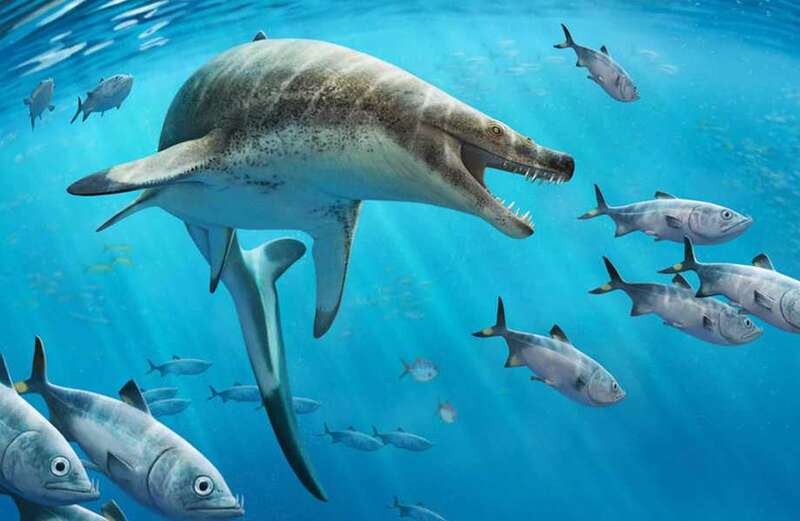A GIANT ancient sea lizard has been discovered by paleontologists and it's a strange new species.
The lizard has dagger-like teeth and is thought to have lived towards the end of the age of the dinosaurs.


This new species, now extinct, has been called Khinjaria acuta.
It grew to around 27 feet long, making it about the size of a killer whale.
Experts say the terrifying species is a new addition to a group of ancient beasts called mosasaurs.
 Man fined £165 after outraging the internet by dying puppy to look like Pikachu
Man fined £165 after outraging the internet by dying puppy to look like Pikachu
Today, Komodo dragons and anaconda are the remaining relatives of these sea lizards.
A study about the new beast has been published in the Cretaceous Research journal.
The study was led by Dr Nick Longrich from the University of Bath.
"Some mosasaurs had teeth to pierce prey, others to cut, tear, or crush.
"Now we have Khinjaria, with a short face full of huge, dagger-shaped teeth.
"This is one of the most diverse marine faunas seen anywhere, at any time in history, and it existed just before the marine reptiles and the dinosaurs went extinct," he said.
Remains of the sea lizard were found at a phosphate mine southeast of Casablanca in Morocco.
A skull and part of a skeleton were discovered at the location.
It's thought a diverse range of sea predators lived in the Atlantic Ocean off the coast of Morocco around the time of Khinjaria.
“What’s remarkable here is the sheer diversity of top predators,” Longrich said.
 Dog who 'always melts hearts' with his smile hopes to find a loving family
Dog who 'always melts hearts' with his smile hopes to find a loving family
“We have multiple species growing larger than a great white shark, and they’re top predators, but they all have different teeth, suggesting they’re hunting in different ways."
Professor NE. Jalil from the Museum National d’ Histoire Naturelle also worked on the study.
"The elongation of the posterior part of the skull which accommodated the jaw musculature suggests a terrible biting force," they said.


































